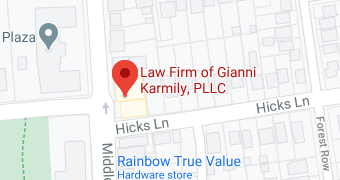What are Miranda Rights? What does it actually mean to plead the Fifth? You may have heard this phrase in movies or court room dramas, but many people misunderstand what kind of protection the Fifth Amendment actually provides.
Details of the Fifth Amendment are as follows:
“No person shall be held to answer for a capital, or otherwise infamous crime, unless on a presentment or indictment of a grand jury, except in cases arising in the land or naval forces, or in the militia, when in actual service in time of war or public danger; nor shall any person be subject for the same offense to be twice put in jeopardy of life or limb; nor shall be compelled in any criminal case to be a witness against himself, nor be deprived of life, liberty, or property, without due process of law; nor shall private property be taken for public use, without just compensation.”
When you use your Fifth Amendment right, you protect yourself against any statements that could potentially incriminate you for a crime. In addition to protection from self-incrimination, it also offers you the right to refuse to give a statement to law enforcement and the right not to answer any questions that could incriminate you either.
What Does The Fifth Amendment Cover?
Generally speaking, the right against self incrimination applies to the trial process. However, you can still use this right during a “custodial interrogation”, which is whenever you are not free to leave, and during other aspects of your criminal investigation. You can plead the Fifth Amendment while you are being arrested, while you are being detained, when you’re being booked, and more.
You can plead the Fifth if, during any stage of the criminal investigation, a law enforcement officer threatens you with force or intimidates you into a confession. Similarly, a law enforcement official might attempt to coerce, force, or intimidate another witness such as a family member into incriminating you as well, or in order to seize evidence. You, and anyone else at the scene of the alleged crime, have the right to remain silent unless you have a Nassau County, Long Island criminal defense attorney present.
How Could Someone Accidentally Incriminate Themselves?
Throughout the process of arrest, detention, and booking, there are many ways in which someone could accidentally incriminate themselves.
Apologizing: Always resist the urge to apologize at the scene of any crime. In some cases, people have a natural inclination to apologize even though they did nothing wrong. For example, after a fender bender, you may rush out of the car and apologize even though you were the one who got hit. Never apologize at the scene, no matter how tempted you may be to do so.
Acknowledging guilt: Similar to apologizing, acknowledging guilt can be considered a form of self incrimination. Never say that you feel bad or guilty for a certain act, as it may be perceived as a way of admitting that you performed the act.
Posting evidence online: This can be tricky, but there are certainly some cases in which law enforcement will look through social media profiles and other websites in order to find incriminating information. If you post something that communicates you may be guilty, this can be used against you in court.
If you have been caught up in a situation where you may have accidentally incriminated yourself, you need to contact a capable criminal defense lawyer as soon as possible. With the help of a criminal defense lawyer, you can create a strong plan for your defense that explains the circumstances surrounding your arrest and justifies why you may have accidentally, wrongfully, incriminated yourself.
Schedule An In Depth Criminal Case Evaluation With The Law Firm Of Gianni Karmily
If you have been accused of any crime in the state of New York, you need strong legal representation to ensure your rights are protected at all times. If you have accidentally incriminated yourself by apologizing at the scene of the alleged crime, acknowledging guilt, posting something online, or another means of self incrimination, you need to schedule a criminal case evaluation with Gianni Karmily.
In your criminal case evaluation, you can discuss the details of your arrest with your criminal defense lawyer and can express your initial concerns to them. Your lawyer will provide you with sound advice for moving forward. Gianni Karmily is a trusted Nassau County, Long Island criminal defense lawyer and is a member of the (NYSACDL) New York State Association of Criminal Defense Lawyers and the (CCBANC) Criminal Courts Bar Association of Nassau County. He has also been honored by Super Lawyers as a Rising Star in Criminal Law for New York Metro from 2019 to 2022.
If you have accidentally incriminated yourself, contact the Law Firm of Gianni Karmily to schedule an in depth criminal case evaluation with Gianni Karmily today.









